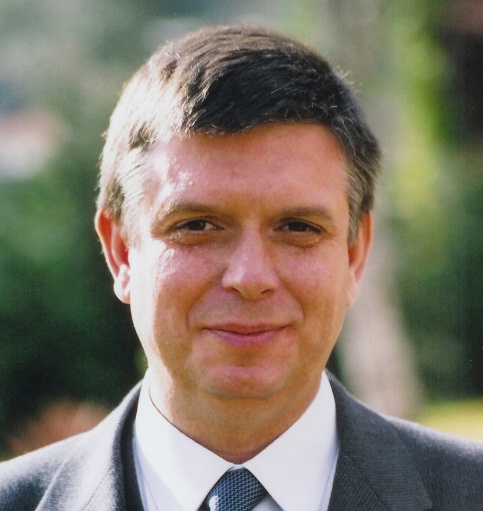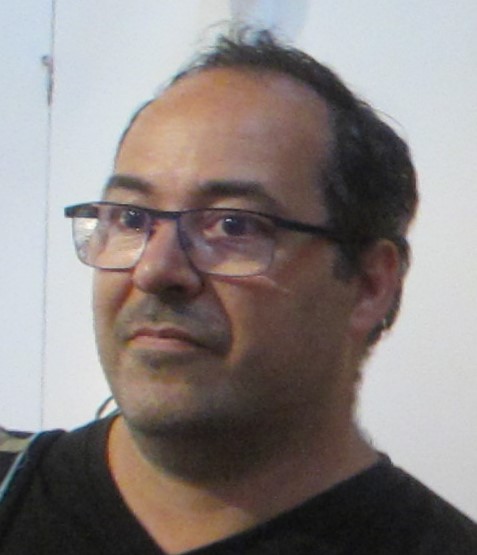 Oradores Plenários / Plenary Speakers
Oradores Plenários / Plenary Speakers
Emilio Carrizosa
Emilio Carrizosa is President of SEIO, the Spanish Stats & OR Society, and Director of IMUS, the Institute of Mathematics at the University of Seville.
He has published more than 110 papers in different Mathematical Optimization (vector optimization, locational analysis, convex analysis, global optimization) and its interface with Data Science.
His academic activity has gone parallel with a strong dedication to transfer of knowledge activities: he has led contracts with different European partners in sectors such as Renewable Energy, Sustainable Mobility and Health.
José Valério de Carvalho

José Valério de Carvalho received Ph.D. degree in Engineering Production and Operations Research from the University of Minho. He is currently Professor of Operations Research of the Department of Production and Systems, School of Engineering, University of Minho, Portugal.
His main research areas of interest are pseudo-polynomial models, column generation and heuristics, and their application in large scale integer programming models in the areas of cutting and packing, scheduling, and routing. Other topics of interest are stabilization and acceleration of column generation.
Sofiane Oussedik

Sofiane received his PhD in 2000. His PhD work was related to Air Traffic Control optimization as part of a collaboration between Eurocontrol, the French Center of Air Navigation Studies and Ecole Polytechnique. Since then he worked as a consultant and manager of the technical sales team for Optimization at ILOG then at IBM. He actually leads the Decision Optimization team within the Data Science Technical Sales Group at IBM in Europe and also works within the IBM Data Science Center of Excellence in Europe to lead the efforts around Data Science use cases for different industries . He works with his clients, partners, team and colleagues to support businesses harness the value of Decision Optimization and Data Science within their business processes.
 Sessões Plenárias / Plenary Sessions
Sessões Plenárias / Plenary Sessions
One day optimizers became data scientists...
Emilio Carrizosa
Data Science is a discipline in between traditional Statistics, Mathematics, Computer Science and many others. Many important challenges in Data Science involve the resolution of nontrivial mathematical optimization problems, either convex or nonconvex, continuous or (mixed) integer, usually in large dimension. These include supervised and nonsupervised classification, and dimensionality reduction.
In this talk we will illustrate the use of Mathematical Optimization in different problems in Data Science, showing how broad and exciting the field is, and how important is the role played by Mathematical Optimization.
Pseudo-polynomial models in optimization: an overview
José Valério de Carvalho
Many structured combinatorial optimization problems can be modeled as flows in graphs with extra side constraints. Among those, there are models in which the size of the graph depends on additional dimensions, as, for instance, size or time, and are coined as pseudo-polynomial models. They have been used in areas such as cutting and packing, scheduling and routing.
At the expense of a larger number of variables and constraints, their LP relaxations provide a nicely close description of the space of feasible solutions and have other properties that make them very efficient computationally. Therefore they are able to solve significantly large problems. In many application areas, where the raw materials or the transportation costs are relevant, being able to get optimal solutions may represent substantial savings and more environment-friendly solutions.
In this talk, we illustrate the use of pseudo-polynomial models in several different applications, and compare the quality of the models and their performance with other modeling alternatives. We also provide insight into structural properties and overview practical enhancements that can further improve computing times.
Operations Research and Machine Learning use cases
Sofiane Oussedik
Combining Machine Learning and Operations Research is a growing area. The techniques have been combined since a long time and at different levels, and the complementarity is gaining much more traction nowadays due to the great value it provides. We'll go thru use cases including optimizing electricity generation, optimizing a bike sharing system, better planning of the production, and go thru modern applications development best practices that eases the development of operational applications required by the line-of-business stakeholders.
